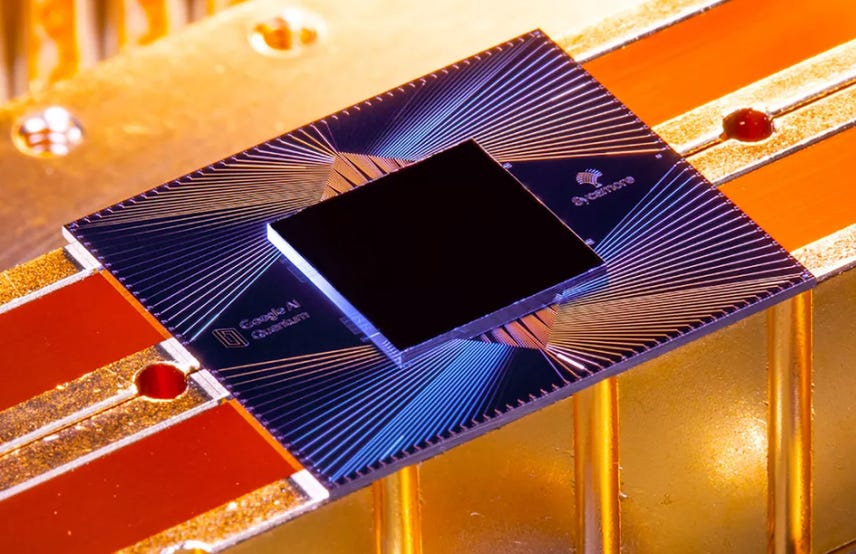
Alright, lastly, forget regular old supercomputers.
Google's released the results of this quantum computer and it blows everything else away.
Google says its machine perform the same number of computations in 200 seconds that the world's fastest supercomputer would take 10,000 years to match.
on with us on Skype is Steven Shankland, who wrote the story and is actually at a conference right now discussing super computers.
Shankland, what's the importance of this announcement?
Break it down for us.>> Okay, so what we've got right now is a computer industry that's slowing down Clock speeds on regular chips are not getting fast the way they used to.
And it's been really hard to demonstrate that this year's phone or this year's PC is a lot faster than last year's phone or last year's PC.
So there's a lot of work going on right now in the computing industry to find something else One of those big something else's is quantum computers.
They are radically different from classical computers.
Classical computers are what runs in your smartwatch or your pc or your phone or conventional supercomputer.
So this is a very interesting, basically a research milestone but one that points the way toward potential commercial use of quantum computers.
And you bring up the term quantum supremacy, what is quantum supremacy cuz that sounds like a Hollywood blockbuster movie.
[BLANK_AUDIO]
Yeah, it's a very catchy term.
It sounds really exciting but you have to be careful with it.
All it means is that a quantum computer is not merely faster than a classical computer at something but Way, way, way faster.
There's no way a classical computer can catch up.
You're doing something with a quantum computer that you could only do with a quantum computer by virtue of its very different nature.
Now the reason you have to be careful is, although Google found something that it's quantum computer can do faster, it can't do everything faster.
It can't even do quantum computing Chore faster.
So it says a narrow victory but it's still an important one, because the researchers believe that it paves the way toward extending quantum computing abilities so that it will be able to knock out more performance victories in the future and be able to do more types of work in the future.
Not just A science fair project, like what we see today.
And so just break it down for us quantum computing.
I know, traditional computing users like ones and zeros quantum computing uses like a weird state, which those ones and zeros at the same time and like how does that how does that make things go faster?
How does that improve the computing horsepower Yeah, you have a very strange world with quantum computers.
It takes advantage of the very strange counterintuitive physics of things that happened at the atomic level.
So instead of having a bit in a classical computer which can store a zero or a one The quantum computer you have a cubit which can store both a zero and one at the same time.
And not only that through another strange thing called entanglement you can hook up these cubits so they're each connected.
That means the state of each one can have bearing on the state of all the other If you look at any computer today, if you look at the physics of how it works today on a smartphone or a smartwatch or a PC, we're already in the sci fi era.
The engineering is going on at the atomic scale already.
Yes, this is a whole nother ballgame with quantum computing.
But frankly I mean, I talk to processor engineers a lot and It's unbelievable what they have achieved already.
So, personally I find it astounding that even conventional computers work, much less quantum computers.
Are we anywhere near a phaser?
No.
Come on, how could you get that kind of energy density in something this big?
Forget it.
See you tomorrow.
For the Daily Charge, I'm Roger Chang!
I'm Scott Stein.
Thanks for joining us!
Can't get enough check out the daily supercharge our extended post show with special features audience q&a and in depth reviews available now.
Wherever you get your podcasts